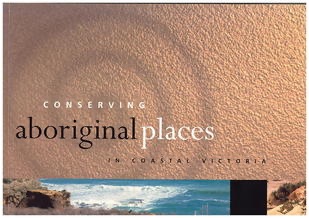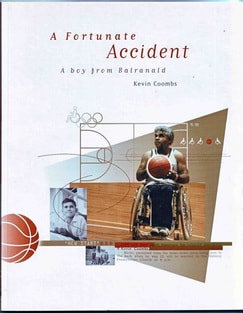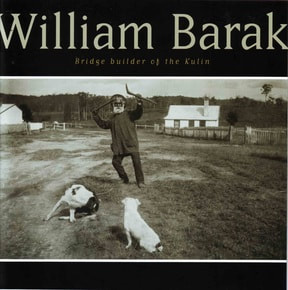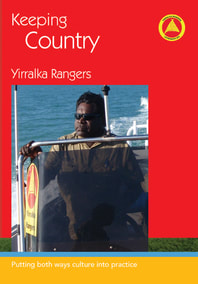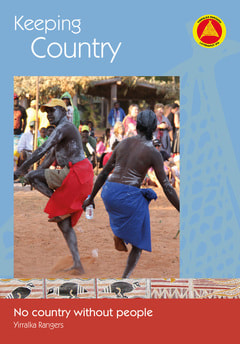A number of classic older titles that are out of print are highlighted below. More details are in REVIEWS.
This page concludes with two booklets produced for the Yirralka Rangers in NE Arnhem Land that can be downloaded as pdfs for free.
Conserving Aboriginal Places in Coastal Victoria
Commissioned by Aboriginal Affairs Victoria in the year 2000, this booklet presents approaches and general guidelines for conserving Aboriginal cultural sites and places in coastal Victoria.
Aboriginal cultural sites and places are found from one end of the Victorian coast to the other – more than 4,000 to date. And this number is increasing every year. Many of the sites are very fragile and exposed to a large number of threats. The very instability of the coastal environment and its high population density places coastal Aboriginal sites at significant risk. Development does not have to be destructive. Awareness of an area’s cultural heritage values can ensure any development is compatible with the preservation of sites. How planning authorities and local government can ensure this precious cultural heritage is preserved for the future is the subject of this booklet. Two copies left in stock. |
A Fortunate Accident: A boy from Balranald
|
William Barak: Bridge builder of the Kulin
|
FREE E-BOOK DOWNLOADS
NE Arnhem Land's booklet series by Indigenous rangers
In collaboration with an Indigenous land management group, the Yirralka Rangers, em PRESS has published two free booklets that tell a positive story about the middle path that the Yolngu people are following in protecting their largely pristine natural environment and cultural sites over an area the size of Wales in north-east Arnhem Land.
The Keeping Country series highlights the work of the 60 or so highly trained and capable Yirralka Rangers. See below for the 1st and 2nd booklets as free pdf versions.
In 2006, a group of Yolngu traditional owners agreed to incorporate a parcel of their high conservation and culturally significant land into Australia’s national reserve system as an Indigenous Protected Area (IPA). Subsequently, the elders formed Yirralka Rangers to care for land and sea country within the Laynhapuy IPA, which now covers over 17,320 sq.km of land and sea country, incorporating some 800km of coastline.
Written in collaboration with the Yirralka Rangers, two 32 page booklets were produced for visitors camping in their recreation areas.
The Keeping Country series highlights the work of the 60 or so highly trained and capable Yirralka Rangers. See below for the 1st and 2nd booklets as free pdf versions.
In 2006, a group of Yolngu traditional owners agreed to incorporate a parcel of their high conservation and culturally significant land into Australia’s national reserve system as an Indigenous Protected Area (IPA). Subsequently, the elders formed Yirralka Rangers to care for land and sea country within the Laynhapuy IPA, which now covers over 17,320 sq.km of land and sea country, incorporating some 800km of coastline.
Written in collaboration with the Yirralka Rangers, two 32 page booklets were produced for visitors camping in their recreation areas.
Keeping Country: Putting both ways culture into practice
The first booklet focused on the Yirralka Rangers ‘both ways’ bicultural approach integrating western skills and science with traditional Indigenous knowledge. To achieve effective management over such a large, complex area of land and sea requires knowledgeable and innovative rangers. The rangers manage recreation areas, control pest plants and animals, patrol 800km of coastline, integrate traditional burning practises with western science, undertake scientific research and protect cultural sites.
Keeping Country: Putting both ways culture into practice can be downloaded as a pdf here. |
Keeping Country: No country without people
Many visitors are curious about how the Yirralka Rangers know that when the wind blows from a certain direction or a plant comes into flower, it's time to go fishing or foraging.
As this second booklet in the series on Keeping Country reveals, it’s not magic. The source of the rangers deep, locally intimate environmental knowledge comes from being on country. From learning creation stories and songlines and all that they contain by walking through their homelands with parents and kin. By seeing, touching, tasting, hearing; by absorbing the fundamental connections between culture and country underpinning body and souls. Keeping Country: No country without people can be downloaded as a pdf by clicking here. |
|
|
em PRESS Publishing specialises in Australian landscapes and their historical and cultural contexts. em PRESS is particularly interested in fusing Indigenous, European settler and nature-based readings of the landscape to provide a truer view of our country.
|

